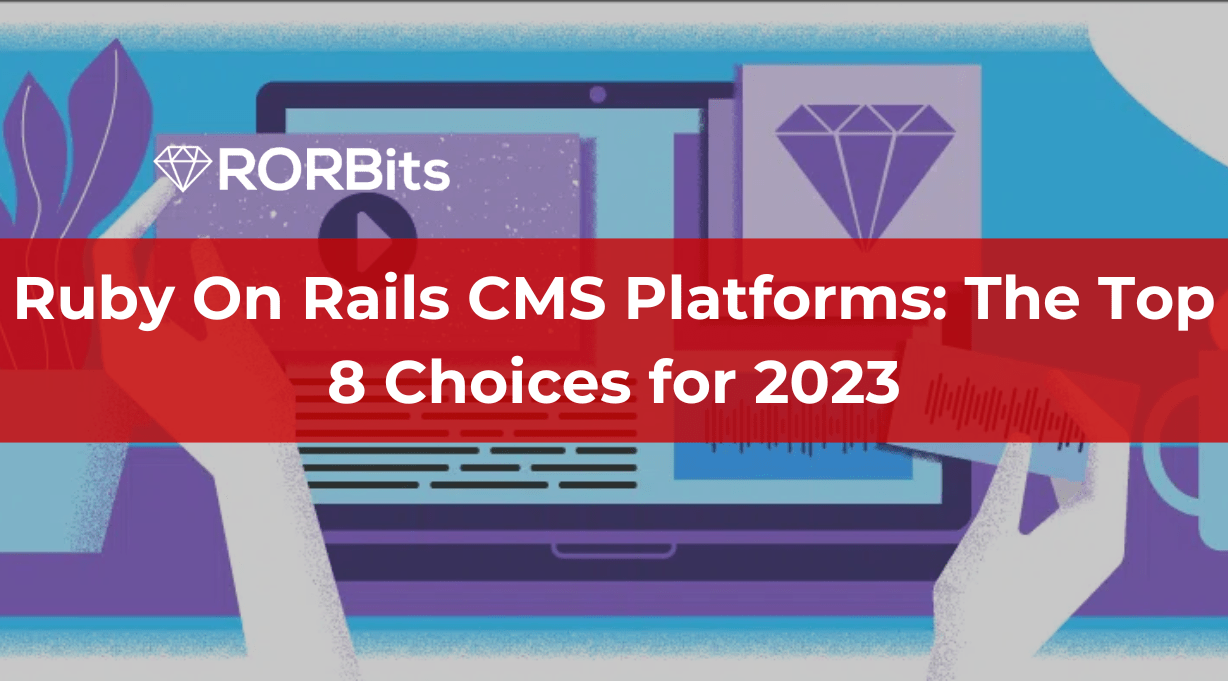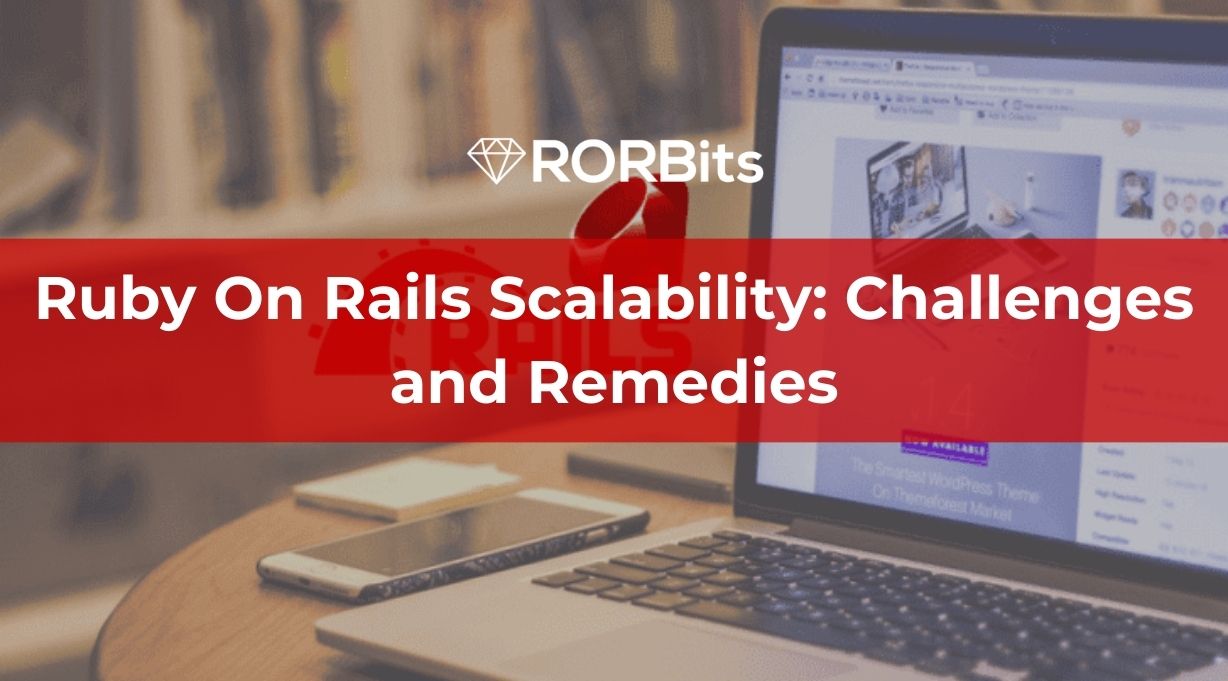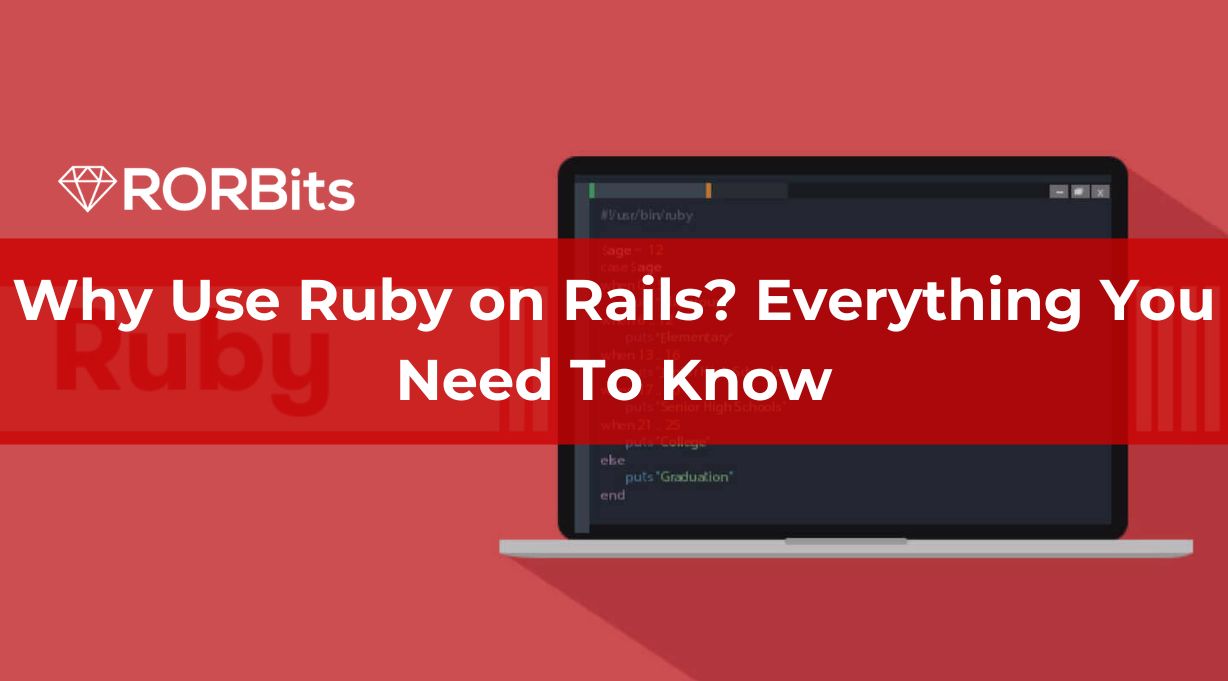Quick Summary
Are you gearing up to launch your own website using Ruby on Rails CMS? Exciting times! But hold on, don’t rush into hiring a whole team of developers just yet.
If you’re after a smaller, more straightforward web project, going down the CMS route might be the way to go.
Not only will it save you time, but it’ll also require minimal effort on your part.
But with so many CMS platforms out there, it can be tough to choose the right one for your project.
Fear not, we’ve got you covered.
In this article, we’ll give you information to know about selecting the perfect CMS for your idea.
And if you’re specifically looking for Ruby on Rails CMS platforms, we’ve got the top eight for you to check out.
Let’s get started!
Understand about CMS
A Content Management System, or CMS for short, is a software that allows you to manage your website’s content easily.
With a CMS, you can format your content correctly, control indexing, and publish content effortlessly.
The primary features and functions of a CMS include:
- Converting your old or existing content formats into the new electronic format of HTML or PDF before uploading it onto your website.
- Indexing your content, making it easy to search for any keyword or attribute (e.g., date).
- Enabling pre-built templates for publishing or modifying content.
Offering additional tools such as template customization, multiple-language support, file management, and one-to-one marketing.
But what exactly is one-to-one marketing?
Simply put, it’s a customised marketing approach that delivers different results for different users.
For instance, when you search for something online, you might see ads that suggest products or services relevant to your search.
This personalised approach to marketing is made possible through the use of a CMS, which helps you target specific users based on their interests and needs.
In summary, a CMS is an essential tool for anyone who wants to manage their website’s content easily and effectively.
It provides a range of features and functions that streamline the content management process, making it a valuable asset for any website owner.
Characteristics of CMS Ruby on Rails
Are you feeling overwhelmed by the sheer number of CMS Ruby on Rails platforms out there?
You’re not alone!
Choosing the right one can be a daunting task.
But fear not, dear reader, for there are some key characteristics you can look for to ensure you select the ideal CMS for your project.
Before diving in, it’s important to remember that not all CMS platforms are created equal.
Just because a Ruby on Rails CMS has a ton of bells and whistles doesn’t necessarily mean it’s the right fit for your project.
In fact, opting for a feature-heavy CMS when your project doesn’t require all those features can actually slow down your system and hinder your progress.
So, how do you know what characteristics to look for in a CMS?
The answer lies in understanding your project’s needs.
Take some time to identify the specific functions your project requires in a CMS, and then focus your search on platforms that offer those functions.
By taking a targeted approach to selecting a CMS, you can ensure you find the perfect fit for your project without getting bogged down by unnecessary features.
Ruby on Rails Consulting from Ruby on rails web development company will also help you in finding the right ruby rails CMS.
Important Factors to Consider for choosing Ruby on Rails CMS
If you’re trying to choose a CMS for your website, there are some important factors to consider.
Here are some things that you should keep in mind:
Ease:
Make sure that anyone who interacts with your website panel or dashboard can use it easily.
This includes your Digital Marketing team, Marketing team, Admin Panel, and more.
Look for a CMS that is user-friendly for everyone.
Purposeful:
Choose a CMS that has the features that you need.
If you only need a CMS for your blog, then selecting one with full features might overload your system.
Additionally, it makes publishing content a tedious and unnecessary process.
Usability:
Check if the CMS you choose is flexible enough for future expansion.
You may only need a few features now.
But it’s good to have the option of adding new tools and functionality in the future.
User-friendly:
Ensure that your developers can modify the CMS when needed.
Your website and its requirements will change over time.
Furthermore, developers may need to update plugins.
Consult with them before investing in any CMS.
Performance:
Your website’s primary purpose is to attract traffic.
So choose a CMS that can handle traffic well and won’t cause any barriers.
Best Eight Ruby on Rails CMS Platforms
It’s best to have the Ruby on Rails CMS Platforms if you want to create a bespoke website having pre-designed templates.
It also allows your website to have a distinctive user interface,
Other Content Management Platforms may not provide the desired features and tools.
However, these best ruby on rails CMS platforms can deliver the necessary enhancements.
Introducing this shift in the market is necessary at present.
To aid your selection for 2023 websites, we have compiled a list of the top 8 Ruby on Rails CMS platforms.
- Alchemy CMS
Alchemy Content Management System is a great choice for your developers.
As they can use their coding skills to customise any edits in the CMS.
It’s built on Ruby on Rails 4.0.
Furthermore, it also offers multi-level caching, internationalisation, and localization.
It works with common databases like MySQL, SQLite, and PostgreSQL.
The CMS is highly scalable, making it an ideal option if you want to grow your business.
It also comes with excellent documentation.
Additionally, it has a secure approach that can withstand attacks like XSS and CSRF.
Its licence is BSD-3 Clause, and it has had 396,782 downloads and 732 Github stars.
Other features of Alchemy CMS include:
- Flexible templates that separate content from markup,
- A rich RESTful API,
- An intuitive admin interface,
- Full-text search engine,
- And support for user access and authorization.
Alchemy CMS makes it easy to develop complex projects.
However, its set-up and customization can be complex and require prior technical knowledge.
- Comfortable Mexican Sofa CMS Ruby on Rails
The Comfortable Mexican Sofa CMS is a Ruby on Rails platform that stands out from others. This is because of its unique features.
It allows for easy mirroring of websites.
Furthermore, you can automatically updating layouts for the mirrored sites.
The CMS supports both Rails 4 and 5.
Besides, it offers control over code snippets, page versions, and website layout management. Its use of the 18n gem allows for support of multiple languages. The CMS also supports Redactor, CodeMirror, and Twitter Bootstrap.
Moreover, it has gained popularity in the community with 617 forks on GitHub. However, it lacks a folder management structure to manage websites effectively.
The Comfortable Mexican Sofa CMS is licensed under MIT.
It has been downloaded 1,060,026 times with 2.7K GitHub stars.
The CMS offers powerful page templating, single-time set-up for multiple sites, and compatibility with Rails 5.2.
Advantages of this Ruby on Rails CMS include:
- Handling multiple sites with a single installation,
- Layout mirroring,
- And feeling more like a Rails application than a traditional CMS.
The CMS also provides regular updates.
However, disadvantages of the Comfortable Mexican Sofa CMS include:
- Difficulty to learn,
- Requiring development experience,
- And demanding HTML knowledge.
Meanwhile also read: list of ruby on rails websites to get better ideas on how CMS in Ruby on Rails develop the best websites.
- Refinery
Refinery CMS is a Ruby on Rails (RoR) project that is open-source and free.
This CMS comes with an array of features.
Features include:
Built-in editor galleries,
Calendars,
And search support, among others.
It is also possible to combine Refinery CMS with any other RoR application.
Plus, it offers a hassle-free single field for content per page.
Furthermore, Refinery CMS provides support for over 30 languages.
In addition, it has a thriving community of contributors and watchers on GitHub.
In short, It is straightforward and user-friendly.
Thus, making it easy for non-technical managers to use.
Additionally, it provides regular updates.
Hire ruby on rails programmers and you enjoy flexibility with a straightforward interface.
However, Refinery CMS may be challenging to manage for complex projects.
And is not suitable for unique projects.
The licence for Refinery CMS is MIT, and it has been downloaded 653,235 times with 3.7K Github stars.
- Browser CMS
Browser CMS is also a great Ruby on Rails-based Content Management System.
It offers a user-friendly and highly intuitive interface.
It is mobile-responsive, customizable, and provides multi-level access.
The CMS comes equipped with three distinct user categories:
- Editors,
- Designers,
- And developers,
Thus, it facilitates the easy assignment of distributed work to your team.
The CMS’s features include:
- CRUD interface,
- Section-focused security,
- and advanced caching.
These all features make it one of the best Ruby on Rails CMS.
It also boasts of 1.2k Github stars.
Browser CMS is a stand-alone and independent CMS with robust capabilities and functionalities.
It offers an extensible and accessible mobile-friendly interface.
Furthermore, you get a content API, and standard content library.
One of its major advantages is its highly extensible nature.
Other benefits also include user-friendliness and straightforward interface.
Site mapping is also effortless, and proper documentation is provided.
However, it is advisable to use Browser CMS for simple Rails applications only.
As it may not be suitable for more complex projects.
For complex projects, you can blend other technologies with Ruby on Rails.
Read more on this at: React with Ruby on Rails: Perfect Pair to Build Web Apps
- Spina CMS
Spina CMS is an ideal option for those who want to create a dynamic website without learning HTML or CSS.
With Spina CMS, managing and publishing content is simple and straightforward.
This CMS is compatible with Ruby on Rails 5+ versions.
Additionally, it offers extendibility and support for multiple languages.
It is licensed under the MIT licence.
Moreover, it has been downloaded over 63,000 times, with 1.8K Github stars.
Spina CMS offers several features.
The main features include flexibility, extensibility, SEO-friendliness, and robust roles.
Furthermore, you get to enjoy permissions management, and drag-and-drop interface.
Additionally, it supports the latest version of Rails. Plus, it provides access to a variety of SEO optimization tools.
One downside of Spina CMS is that it lacks proper official documentation.
Thus, it becomes challenging for new users.
Another drawback is that it is difficult to manage multiple sites.
- Locomotive CMS
Locomotive CMS is a software that can be obtained in both free and paid versions.
Choosing Locomotive CMS is a good option if you want to create a user-friendly website.
It is also best for development of practical websites with a sleek interface.
Locomotive Ruby on Rails CMS is licensed under the MIT license.
It has been downloaded 167,338 times.
In addition, it has received 2.3K Github stars.
The software supports over 70 languages and uses the simple templating language, Liquid.
It can manage multiple sites and supports the Wagon CLI for building sites.
One of the benefits of Locomotive CMS is that it offers both free and paid versions.
Moreover, it supports real-time editing, has an active and supportive community.
Furthermore, it has well-maintained documentation.
However, it is only compatible with non-relational databases.
Plus, it requires the use of Wagon CLI.
- Radiant CMS
Radiant CMS was created in 2006.
Interestingly, it was the first CMS built for Rails.
It has gained popularity due to its high extensibility and accessibility.
It is also popular for its lightweight design.
Despite offering over 200 extensions to date, Radiant CMS has not been updated for the past five years.
However, Radiant CMS still remains licensed under MIT.
This Ruby on Rails CMS has been downloaded 156,141 times with 1.6K Github stars.
Radiant CMS features its own template language.
It also has a simple interface and utilizes a different page caching system.
The advantages of Radiant CMS include:
- Its support for various formats,
- Its straightforward and easy-to-use interface,
- And its minimalistic design.
However, its disadvantages include the demand for knowledge in JS, HTML, and CSS.
- Chameleon
Chameleon is a web-based IT solution that is fully integrated with PetHarbor.com.
It can be customised to cater to the specific requirements of animal-related organisations.
It is built on a robust Ruby on Rails framework that enables organizations to handle the entire business cycle.
Starting from searching for pets to managing the adoption process.
With Chameleon, animal lovers, shelters, and rescues from all over can find the perfect pet for their family.
In short, chameleon CMS is a cutting-edge and flexible Content Management System that relies on Ruby on Rails.
It also offers a viable alternative to WordPress in the same programming language.
Furthermore, CMS can be effortlessly customised to fit any type of project, without requiring programming skills.
Thus, allowing users to focus on creating content rather than programming.
Tips to choose best CMS Ruby on Rails
When it comes to building websites or web applications, choosing the right content management system (CMS) is crucial.
A CMS Ruby on Rails can make or break your project, so it’s important to choose one that meets your needs and requirements.
Ruby on Rails is a popular web application framework that allows developers to build scalable and secure web applications quickly.
Learn about ROR Scalability in detail at: Ruby On Rails Scalability: Challenges and Remedies
Consider Your Needs
- The first step in choosing a Ruby on Rails CMS is to consider your needs.
- What are you looking to achieve with your website or web application?
- Do you need a CMS that’s easy to use and maintain, or do you require advanced features and functionality?
- Understanding your needs will help you narrow down your options and choose a CMS that’s best suited for your project.
Look for Flexibility
- Flexibility is a crucial factor when choosing a Ruby on Rails CMS.
- A flexible CMS will allow you to customise and extend its functionality to meet your unique requirements.
- Look for a CMS that provides a solid foundation, but also allows you to build on top of it as your needs evolve.
Check for Compatibility
- When choosing a Ruby on Rails CMS, it’s important to check for compatibility with your existing infrastructure.
- Ensure that the CMS is compatible with your web server, database, and any other third-party tools you’re using.
- Compatibility issues can lead to significant delays and additional costs, so it’s essential to do your due diligence.
Evaluate Security Features
- Security should be a top priority when choosing a Ruby on Rails CMS.
- Look for a CMS that has robust security features, including encryption, user authentication, and access control.
- Your CMS should also provide regular updates and patches to address any vulnerabilities that may arise.
Consider Community Support
- The Ruby on Rails community is active and vibrant, and it’s important to choose a CMS that has strong community support.
- Look for a CMS that has an active user community, documentation, and resources available online.
- A strong community will provide you with the support you need to overcome any challenges you may encounter during development.
Conclusion
In conclusion, Ruby on Rails CMS platforms offer great options for website development in 2023. The platforms listed in this article all provide excellent features for managing website content, and each has its own strengths and weaknesses. Choosing the right CMS depends on the specific needs of your website and your personal preferences. However, with the comprehensive list of the top 8 Ruby on Rails CMS platforms provided, you are well-equipped to make an informed decision that will help you build a robust and reliable website.




